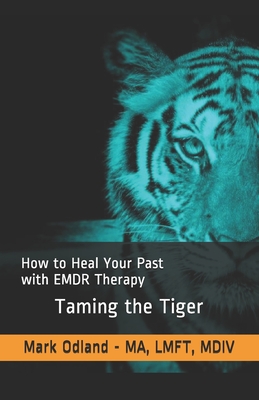
description
5We live in a world ripped apart by trauma. Just turn on the news, and there it is. Another war, another attack, another epidemic. And even if we turn off the news, we're left with the reality of our lives, and the challenges within our own families. Illness, death, broken relationships... and there's our regrets... our doubts... our insecurities, and our fears... all amplified by unhealed wounds from the past. So often, we try to ignore these wounds. But over time, it catches up with us. Whether we like to admit or not, our past shapes us. It shapes not only how we see the world, but it literally changes our brains. From 1995-1997 Kaiser Permanente did a massive study of over 17,000 subjects to try and better understand the way trauma experienced in childhood impacted individuals long-term. In what is now known as the (ACE) study, because it focused on "Adverse Childhood Experiences," subjects completed confidential surveys, allowing researchers to gather data on their experiences of physical, sexual, and emotional abuse; emotional and physical neglect; and negative household experiences like divorce, addiction, violence and incarceration... and the results were jaw-dropping. The researchers found that not only were these adverse childhood experiences very common, but that as the number of these experiences increased, so did the individual's risk for a whole host of problems later in life. One might expect that there would be some mental health issues because of childhood pain... but the big surprise was the direct link between these painful experiences and an increased likelihood of having medical and socio-economic problems later in life... like addiction, heart disease, liver disease, financial stress, academic problems, risky behaviors, suicide attempts, and domestic violence. One of the big takeaways from this study was the importance of not only trying to minimize and prevent these painful experiences from happening, but also... (here's where EMDR comes in)... also trying to heal the emotional trauma so that these problems later in life don't have to manifest the same way. Yes, there is a silver lining in all this. There is a ray of light in the midst of so much darkness in this world. With EMDR therapy, trauma can permanently heal, allowing individuals to live healthier, more joyful lives, and break the destructive patterns passed down from generation to generation. In this sense, EMDR truly can change the world And I'm so honored to tell you about it. My name is Mark Odland, and I'd like to personally welcome you to this crash course on EMDR therapy and how it can transform your life. EMDR therapy is, simply put, the most groundbreaking and powerful therapy out there. Its 8-phase process is highly researched, and has been empirically validated by over 2 dozen randomized studies of trauma victims. It's recognized by the American Psychiatric Association, the Department of Veterans Affairs, and the Department of Defense. It's also one of only two trauma therapies endorsed today by the World Health Organization for treating PTSD. From the outside, it can look a little too good to be true. But the research doesn't lie. EMDR is the real deal, and it's here to stay. But to be clear, this course itself is not EMDR therapy, because EMDR is something you'd receive over the course of several weeks or months from a trained, mental health professional. This course itself isn't therapy, and it's not a quick fix. But it is an in-depth introduction to EMDR therapy. My goal is to take the mystery out of it... to pull back the curtain to show you exactly what it is, how it works, why it works, and how it can help you or someone you love find lasting healing from trauma. Knowledge is power, and my hope is that this course helps you see, and believe, that emotional pain doesn't have to have the last word. That old hurts can, in fact, heal... permanently.
member goods
No member items were found under this heading.
listens & views

HARD TO FIND JUKEBOX CLASSICS ...
by HARD TO FIND JUKEBOX CLASSICS 1958: RHYTHM / VAR
COMPACT DISCout of stock
$16.75
Return Policy
All sales are final
Shipping
No special shipping considerations available.
Shipping fees determined at checkout.






